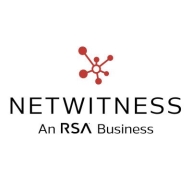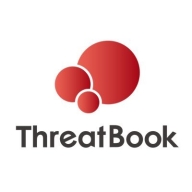

NetWitness NDR and ThreatBook compete in the network detection and response space. NetWitness NDR is known for its comprehensive threat detection and response, while ThreatBook offers strong threat intelligence features, making both valuable in their own right.
Features: NetWitness NDR provides real-time threat analysis, utilizes machine learning algorithms, and offers comprehensive data logs. ThreatBook specializes in threat intelligence, integrating global threat data for deeper insights and detailed threat assessments.
Ease of Deployment and Customer Service: NetWitness NDR ensures smooth deployment with reliable support for quick setup. ThreatBook delivers a streamlined process and stands out for its personalized customer service.
Pricing and ROI: NetWitness NDR is fairly priced with good ROI owing to its feature set. ThreatBook, despite higher setup costs, promises significant ROI with its sophisticated threat intelligence.

Using a centralized combination of network and endpoint analysis, behavioral analysis, data science techniques and threat intelligence, NetWitness NDR helps analysts detect and resolve known and unknown attacks while automating and orchestrating the incident response lifecycle. With these capabilities on one platform, security teams can collapse disparate tools and data into a powerful, blazingly fast user interface.
ThreatBook is a cybersecurity platform that provides advanced threat intelligence to protect networks from evolving threats, utilizing real-time data analytics and comprehensive reporting to bolster defenses.
Designed for enterprises, ThreatBook equips IT teams with insights into the latest threats, integrating seamlessly with existing security infrastructures. It focuses on proactive threat detection and incident response, offering a deep understanding of threat landscapes. The platform is appreciated for its ability to deliver actionable intelligence, enhancing overall network security posture.
What are the key features of ThreatBook?In finance, ThreatBook implementation helps safeguard sensitive financial data, while in healthcare it protects patient information by preventing data breaches. It also supports manufacturing businesses by securing intellectual property from cyber espionage. Each industry benefits from features tailored to its specific threat landscape and priorities.
We monitor all Threat Intelligence Platforms reviews to prevent fraudulent reviews and keep review quality high. We do not post reviews by company employees or direct competitors. We validate each review for authenticity via cross-reference with LinkedIn, and personal follow-up with the reviewer when necessary.